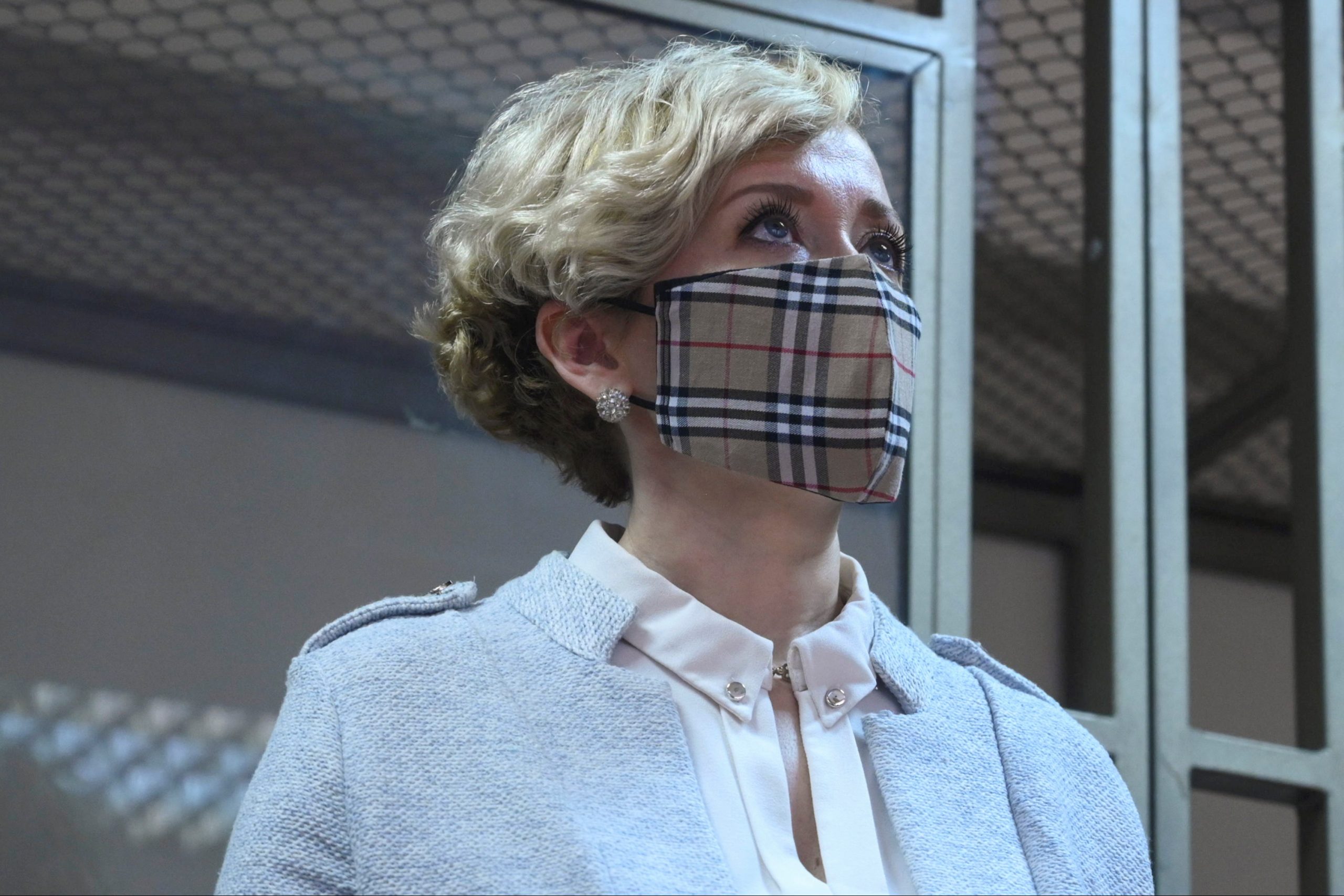© Photo by REUTERS/Sergey Pivovarov
After a trial marred by irregularities, today a Russian court convicted a civic activist of ‘repeated participation in the activities of an undesirable foreign organization’ and imposed a four-year suspended sentence conditioned on compliance with probation conditions. This decision violated the activist’s rights to freedom of expression, peaceful assembly, and association, which are protected by treaties to which Russia is party.
Russia’s ‘undesirable organizations’ law has been characterized as an effort to “squeeze the life” from civil society. The case against the activist, Anastasia Shevchenko, shows the playbook. First, the authorities proscribe a foreign rule-of-law organization—in this case, a UK-registered nongovernmental organization named ‘Open Russia’ that seeks to promote free elections and independent courts—based on specious claims that it ‘threatens the state.’ Then, prosecutors go after those engaged in similar work at the domestic level. Here, defense witnesses testified that Shevchenko was not in fact involved with Open Russia-UK, but with a domestic movement with a similar name. The result is chilling of domestic activism. Indeed, in this case, all that Shevchenko stood accused of doing was, as the defense put it, attending “a picket at an agreed public event,” where she held up a sign with the slogan “Fed Up With Him,” and participating in a meeting.
Stephen Townley, Legal Director of the TrialWatch initiative, said, “No one should be prosecuted for peacefully protesting or expressing their political opinion. Russia should stop using the criminal justice system to try to intimidate civil society organizations.”
This was the first criminal prosecution of an individual under the ‘undesirable organizations’ law, which the Venice Commission has found inconsistent with international human rights standards. But it is not the only one: Additional criminal prosecutions against those allegedly affiliated with ‘Open Russia’ are underway. And Russia continues to use ‘foreign agent’ and ‘foreign organization’ laws to shut down civil society groups.
Shevchenko was kept under house arrest for more than two years prior to and during trial, preventing her from seeing her 17-year-old daughter, who was seriously ill, in the period leading up to her death.
Further, the authorities installed a secret camera in Shevchenko’s bedroom, violating her right to privacy in what may have been an attempt to exert “psychological pressure.”
CFJ calls on the court of appeals to reverse Shevchenko’s conviction. Further, CFJ urges Russia to reform or repeal its law on ‘undesirable organizations’ to comply with international human rights law.
Background
Russian Law permits the authorities to declare an organization ‘undesirable’ if its activities “threaten the foundation of the constitutional order of the Russian Federation, the country’s defence capability, or the security of the state.” Article 4 of Russian Law No. 129-FZ of 2015 provides for administrative penalties for participating in the activities of an ‘undesirable organization.’ That same law provides that anyone convicted of this administrative offense twice in one year can then be criminally prosecuted for continued ‘participation’ and may be subject to imprisonment for up to six years.
Shevchenko, who had twice been convicted of participation in the activities of ‘Open Russia-UK’ under the Code of Administrative Offenses, was arrested on January 21, 2019, and charged under the counterpart criminal provision. Ms. Shevchenko was kept in a pretrial detention facility for two days, after which she was placed under house arrest.
The house arrest was ordered because she was “accused of committing a grave crime” and under the theory that there was “a real possibility of her going abroad” if placed on bail due to her previous travels. This approach is inconsistent with international and regional standards favoring an accused’s liberty pending trial. In particular, these standards require individualized consideration of whether a restriction on liberty is necessary, and, if so, mandate that the least restrictive option be imposed. In Shevchenko’s case, not only was house arrest unnecessary, but it was also unduly restrictive: for the first year, she was not even permitted to call her mother.
As noted by the Council of Europe Commissioner for Human Rights, one of the flaws in the ‘undesirable organizations’ law is that “virtually any action” could be seen “as falling under [its] scope.” In this case, the actions that the authorities alleged constituted participation in Open Russia-UK were protected by the rights to freedom of expression and peaceful assembly. For instance, the prosecution presented evidence that Shevchenko held a sign with the slogan “Fed Up With Him” during the rally she attended. A witness explained that this meant participants in the rally were “tired of a regime in which there is no clear, definite transfer of power, and everything depends on an institution called a ‘specific person’ – the president.” The message on the sign constituted political speech entitled to the highest degree of protection.
At trial, the authorities were vague as to how Ms. Shevchenko was associated with Open Russia-UK. For instance, one key witness testifying to Shevchenko’s presence at a meeting at which she ostensibly introduced herself as a coordinator of Open Russia could remember few details. He noted that he had only been at the meeting “for a few minutes” and had otherwise read about Shevchenko’s activities online.
The prosecution also relied on evidence from a hidden camera in Shevchenko’s room. Some of the footage produced at trial included unrelated conversations between Shevchenko and her family. Further, according to Shevchenko’s family, some of the footage investigators showed her during the investigation was of Ms. Shevchenko in her underwear. This violated her right to privacy and appears likely to have been an effort to intimidate her.
A full TrialWatch Fairness Report will be made available soon.
View statement in Russian (русский).
